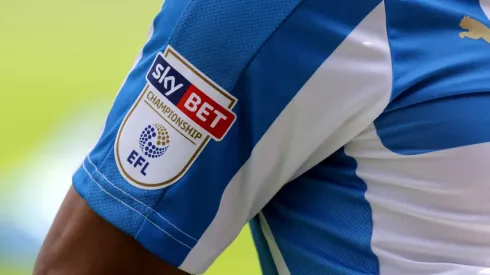The Premier League and English Football League (EFL) are nearing an agreement to collectively sell overseas broadcasting rights for the first time beginning in the 2028-29 season. This proposed deal would provide increased revenue to EFL clubs and have major implications for the Premier League’s U.S. media rights once the current deal with NBC expires after the 2027-28 campaign.
Details of the Premier League and EFL Agreement
Under the terms presented to EFL clubs, the lower divisions would receive 14.75% of the net media revenue from the pooled overseas broadcasting rights starting in 2028-29. This is projected to more than double the current £130 million in annual solidarity payments from the Premier League to the EFL.
Additionally, the EFL would get an £88 million bonus this season ahead of the collective sales. The overseas rights are currently worth around £5 billion over three years to the Premier League. Their value has outpaced domestic deals in recent years.
Financial Support for EFL Clubs
After next season, the Premier League will also pay the EFL an extra £130 million annually as part of a “New Deal for Football.” The money will be distributed based on the final table position, meaning bigger payouts for more successful clubs.
EFL clubs are said to be reviewing the Premier League’s offer. Concerns remain over some of the imposed spending restrictions attached to the new funding. However, the deal would provide increased financial security to the 72 EFL teams.
Implications for the U.S. Market
For the Premier League, it gives them long-desired control over the EFL’s media rights. But the biggest impact may come in how the league approaches the U.S. market next time around.
NBC signed a six-year, $2.7 billion deal to broadcast the Premier League in 2015. It was a record agreement at the time and marked a major milestone in soccer’s popularity stateside. The network then re-upped for another six years in 2021, paying more than $2 billion this time.
Meanwhile, ESPN currently holds broadcast rights to the EFL as part of its expansive soccer portfolio.
With Premier League and EFL rights bundled, what is now the ‘Crowned Jewel’ of league rights would only become even more desirable – but also very expensive. How much would NBC or ESPN be willing to pay for such rights? And, it is impossible to have a discussion today about US soccer rights without mentioning Apple. Since securing worldwide MLS rights in a 10-year deal, speculation has been rampant about their next move in the soccer streaming market. There is little doubt Apple would be interested in Premier League/EFL rights and money is not a barrier for the cash-rich company.
2028 is a long way away when you consider how quickly the landscape of tv/streaming changes, not to mention the advancements in technology. The Premier League has a good relationship with NBC/Peacock and the same can be said with the EFL and ESPN. But with the money that Apple can bring to the table, they cannot be discounted as a serious contender for the rights. And we shouldn’t ignore the likes of Amazon or even Netflix who have not hidden their desires to enter the live sports business in the US.
Exposure to Lower League Clubs
For EFL sides, especially in the second-tier Championship, this could provide more exposure in a growing market. Matches drawing hundreds of thousands of viewers on cable TV would bring attention most EFL clubs have never experienced before.
Several clubs attracting investment from American owners could stand to benefit even more from the raised profile. Wrexham has seen a surge in Stateside interest since being purchased by Hollywood stars Rob McElhenney and Ryan Reynolds and being featured in the docuseries “Welcome to Wrexham.” Other teams like Sunderland, which is owned by billionaire businessman John Phelan, have been the subject of popular behind-the-scenes documentaries distributed by ESPN and Netflix. More American EFL club owners and investors will see the value in their ventures rise if new broadcasting deals facilitate increased fandom from across the Atlantic. This could also mean more American investors entering the fray to purchase EFL clubs.
A win for the Premier League, EFL and fans
While the EFL recognizes this joint agreement as a win, the Premier League also stands to benefit financially from the inflated bids it could now demand overseas. The real victors from the landmark broadcasting deal may well be the American fans’ newfound access to England’s historic football pyramid, no matter who ends up winning the rights.
Photo: IMAGO / PA Images















